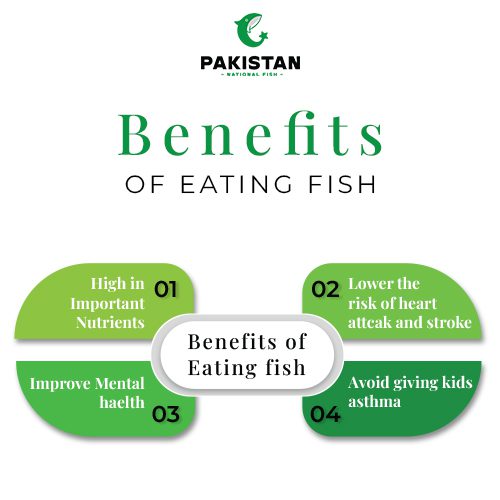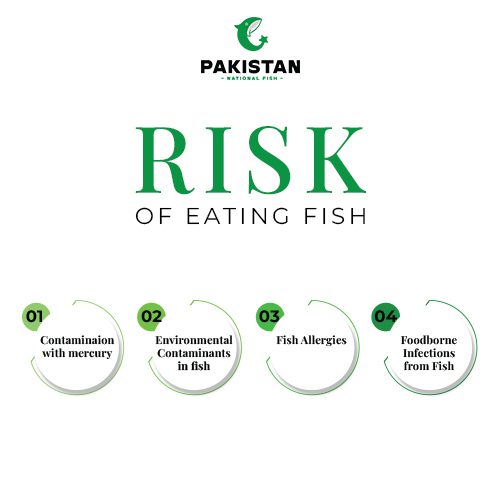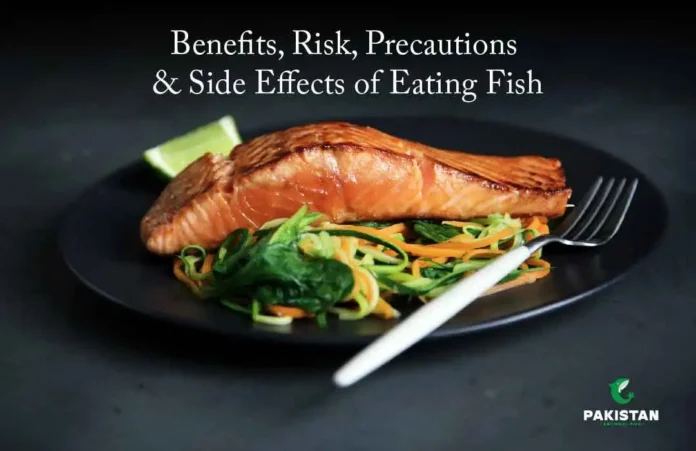Health Benefits of Eating Fish
One of the healthiest foods on the earth is fish. It is brimming with vital minerals, such as vitamin D and protein. Omega-3 fatty acids, which are vital for your body and brain, are also abundant in fish.

1. High in important nutrients
Fish is rich in essential nutrients like protein, iodine, vitamins, and minerals. Fatty species, like salmon, trout, sardines, tuna, and mackerel, are considered healthiest due to their high fat-based content, including vitamin D and omega-3 fatty acids. Eating fatty fish regularly and using microalgae supplements are recommended.
2. Lower the risk of heart attack and stroke
Fish is a heart-healthy food, with large observational studies showing a 15% lower risk of heart attacks and strokes. Regular consumption of fish, particularly fatty types, is believed to be even more beneficial due to their high omega-3 fatty acid content.
3. Improve mental health
As you age, your brain function frequently deteriorates. Although modest mental deterioration is common, there are also major neurodegenerative illnesses such as Alzheimer’s disease. Numerous observational studies demonstrate that the rate of mental decline is slower in those who consume more fish. Additionally, research shows that weekly fish eaters have higher levels of gray matter, the primary functional tissue in the areas of the brain responsible for controlling emotion and memory.
4. Avoid giving kids asthma
The common illness known as asthma is characterized by a persistent inflammation of the airways. In the last several decades, there has been a significant rise in the prevalence of this illness. Research indicates that children who regularly consume fish have a 24% decreased risk of developing asthma; however, no discernible benefit has been observed in adults.
5. Reduce your risk of autoimmune diseases
Research suggests that omega-3 or fish oil intake may reduce the risk of autoimmune diseases like type 1 diabetes in children and a form of autoimmune diabetes in adults, and may also lower the risk of rheumatoid arthritis and multiple sclerosis.
6. Nutrients that are essential for growth
- For healthy growth and development, omega-3 fatty acids are necessary.
Docosahexaenoic acid (DHA), an omega-3 lipid, is particularly crucial for the development of the brain and eyes.
Because of this, it’s frequently advised that women who are expecting or nursing consume adequate omega-3 fatty acids.
On the other hand, mercury poisoning has been connected to issues with brain development in certain fish.
Pregnant women should therefore limit their fish intake to 12 ounces (340 grams) per week and limit it to low-mercury varieties like trout, sardines, and salmon.
Risks of eating fish
Eating fish carries some nutritional advantages, but there are also possible hazards. Hazardous substances can be ingested by fish as well as absorbed from the water. Over time, substances like PCBs and mercury can accumulate in their systems.

1. Contamination with mercury
- Industrial pollution converts into toxic methylmercury.
- Larger predatory fish have higher levels.
- Causes developmental and cognitive issues.
- Pregnant women, nursing mothers, children advised.
2. Environmental Contaminants in Fish
- Contaminated fish contain PCBs, dioxins, and microplastics.
- Pollution from plastic pollution, industrial waste, and agricultural runoff accumulates in water bodies.
- Contaminated fish can cause health issues like endocrine disruption and cancer.
- Recommendations: choose lower-tier fish, wild-caught from cleaner waters, and seek sustainable sourcing certificates.
- Consistent policies and warnings aid in safer decision-making.
3. Fish Allergies
- Symptoms include swelling, hives, breathing difficulties, and in severe cases, anaphylaxis.
- Fish protein, even trace levels, can cause fish allergies.
- Cross-contamination during food preparation is a risk.
- Requires a strict no-fish diet and careful food labeling.
- Essential to have an epinephrine auto-injector for severe reactions.
- Seek individualized guidance from an allergist.
4. Foodborne Infections from Fish
- Infections caused by bacteria, viruses, and parasites like Vibrio, Anisakis, and Salmonella.
- Symptoms include abdominal pain, diarrhea, vomiting, and nausea.
- Fish should be cooked to 145°F (63°C) to prevent infections.
- Proper handling, storage, and sanitation are crucial.
- Vulnerable populations include pregnant women, small children, and those with compromised immune systems.
- Risk reduced by eating from reliable suppliers and following food safety regulations.
Precautions to take before and after consuming fish
Before eating fish
- Choose low-mercury fish like salmon, sardines, trout, and herring.
- Avoid high-mercury fish like swordfish, shark, tilefish.
- Source sustainably for a healthy diet.
- Check freshness through eyes, body, and scent.
- Store fish refrigerated, and check for pollutants.
- Purchase from reliable suppliers with high turnover rates and good hygiene standards.
What is the reasoning behind Milk After Fish?
Popular cuisines frequently include milk and fish because experts believe these foods can prevent heart disease, diabetes, and mental health problems. The healthiest meals are those that include dairy, seafood, nuts, and grains. Certain fish varieties should be consumed in moderation, and people with lactose intolerance or milk allergy should stay away.
After eating fish
Observing for Allergic Responses
• Look for signs of allergic reactions like swelling, hives, or breathing trouble.
• Seek medical help immediately.
Looking for Symptoms of Foodborne Illness
• Observe abdominal discomfort, diarrhea, nausea, and vomiting.
• Contact a healthcare provider if symptoms persist.
Keeping Hydrated
• Drink plenty of water, especially for stomach discomfort.
The side effects of taking fish regularly
The intake of fish has raised concerns because of pollution, which includes potentially harmful compounds such as dioxins, PCBs, and methylmercury. During their life cycle, fish gain methylmercury by eating smaller marine invertebrates and eventually larger fish. Mercury poisoning, hearing loss, visual impairments, difficulties with balance, and muscle weakness can all result from humans storing mercury in their bodies. There is a health risk when eating too many fish that contain mercury.
One scary side effect of eating fish regularly
Mercury Exposure and Fish Consumption
• Mercury harms the central nervous system, causing migraines, memory loss, and weakened muscles.
• Overindulging in fish can cause unintentional negative effects.
• Pregnant women are advised to limit fish intake to 2-3 meals per week.
Conclusion
Fish is abundant in protein and contains healthy omega-3 fatty acids, which are two of the many health advantages of eating it. But it’s crucial to be aware of the dangers posed by toxins like mercury and others, as well as the possibility of allergic reactions and foodborne infections. You may optimize the health advantages and minimize the hazards by eating a range of species, cooking fish properly, and selecting low-mercury and sustainably sourced seafood.


